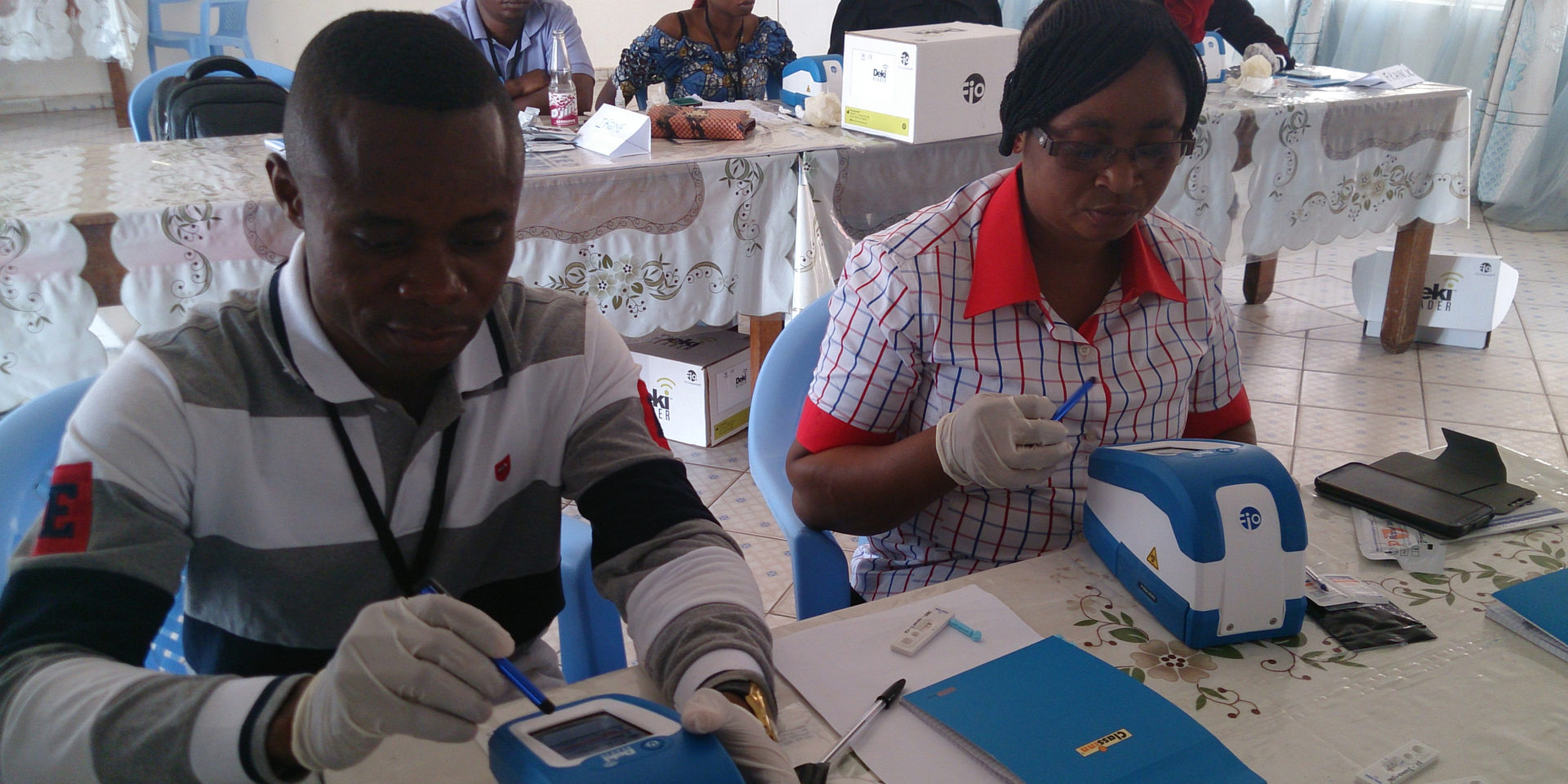
Feeling the Heat: How Climate Change is Affecting Global Health
November 8, 2017 | 4 Minute ReadClimate change allows disease-carrying organisms like mosquitoes to breed more prolifically. But its negative effects do not end there. Global Health Division Manager Wan Lee explores just how far reaching the impacts of climate change can be when it comes to our health.
It is early November and I glance at my phone to check the daily forecast. It is a balmy 79 degrees Fahrenheit in Washington, D.C. — unusually warm so late in the year, but noticeably more commonplace in recent years.
According to data gathered by NASA and the National Oceanic and Atmospheric Administration (NOAA), 2016 was the warmest year on record. Eight of those 12 months (from January through September, except for June) were the warmest on record for those respective months. The planet’s average surface temperature has risen about 2 degrees Fahrenheit (1.1 degrees Celsius) since the late 1800s, which has mostly been driven by carbon dioxide and other human-made emissions released into the atmosphere. This as well as data captured from other scientific organizations clearly shows that, as the Intergovernmental Panel on Climate Change (IPCC) states, “warming of the climate system is unequivocal.” Climate change is leading to detrimental environmental and atmospheric changes, which also significantly impacts global health.
One of the most acute and immediate effects of climate change on global health is the rise in vector-borne diseases such as malaria, Zika, West Nile Virus, and Lyme disease. Vector-borne diseases are human illnesses caused by parasites, viruses, and bacteria that are transmitted by mosquitoes, flies, mites, ticks, snails, and other vectors (WHO). As temperatures rise, warmer seasons become longer and precipitation patterns change, enabling disease-carrying vectors to breed more prolifically and for an extended period. With this rise in temperature, mosquitoes and other warm weather vectors are also able to move into higher altitudes and regions farther from the equator. In some regions of the United States, warm temperatures are already impacting the range and season for Zika-carrying mosquitoes. The burden of vector-borne diseases is also the greatest for the poorest populations of the world — the per capita mortality rate from these diseases is almost 300 times greater in developing nations than in developed regions (WHO).
Beyond Vector-borne Disease
The increase in vector-borne disease due to climate change is one of the most obvious and pressing global health issues. However, a rise in temperature will also affect a host of other health issues that may not be as apparent but are just as dire. According to the Center for Disease Control and Prevention (CDC), the National Center for Environmental Health, and the Intergovernmental Panel on Climate Change, there is compelling scientific evidence that links climate change to extreme weather events such as severe droughts, extreme precipitation, coastal flooding, and heat waves — all of which have a profound effect on health.
Drought will affect water and food supply, impacting agriculture production and nutrition, particularly for those living in arid and semi-arid regions such as the Middle East, North Africa, and South and Central Asian countries. Extreme precipitation and coastal flooding may also displace communities near waterways; this was recently exemplified by the hurricanes that impacted communities living in Florida, Texas, and Puerto Rico. Extreme precipitation and flooding can also increase the spread of waterborne illnesses such as Leptospirosis, diarrhea, and cholera. Heat waves cause heat-related illness and death and threaten cardiovascular health, especially for the very young and the elderly who are more vulnerable to extreme changes in temperature (American Society on Aging). It also magnifies the effects of poor air quality and pollution, which impacts asthma, respiratory allergies, and increases the prevalence of cardiovascular disease, particularly for those living in urban areas where air pollution tends to be highly concentrated.
The negative impacts of these changes are far reaching, especially as scientific evidence indicates that the rising temperatures will not immediately halt, and will test the capacity of health systems globally. To adapt to and mitigate the effects of climate change on human health and lives, global health systems will need to be well-informed, prepared, and able to identify and respond to the influx and myriad health symptoms related to changes in the environment.
Using Data to Develop Effective Responses
To support health systems, it is imperative that governments and ministries have access to research and data on climate change to help inform their decision making. While research on climate change and health has been ongoing in the past few decades, using this information effectively to inform global policy and guide countries on taking decisive steps towards tacking new climate change-related health challenges is still in its early stages.
The USAID-funded Climate Change Adaptation, Thought Leadership, and Assessments (ATLAS) Project uses data and research to promote adaptation to climate change and integrate adaptation into development investments that promote sustainable and resilient growth. Recently, ATLAS published reports on the effects of climate change and health in Mozambique and Senegal that build on the current scientific knowledge base on climate change to strengthen health programming and identify relevant responses that address these risks. ATLAS also supports governments and health ministries to identify and fill knowledge gaps about the local effects of climate change and health and demonstrates how climate information can help better anticipate and respond to disease outbreaks. For example, if a heatwave is anticipated in a region, governments can quickly inform their health clinics about the associated health risks of extreme heat and mobilize the necessary resources to ensure responsiveness.
It is apparent that climate change and health are inseparable issues: The breadth of climate-related health problems, from vector-borne disease to asthma, will become more prevalent and urgent in the very near future. As ominous as this might seem, it is possible to start using research and data to begin critically assessing the current state of environmental and health policies on a global, country-wide, and even community-wide level. Taking these steps will create more resilient and informed health systems and mitigate the risks climate change pose to the human health across the world.































